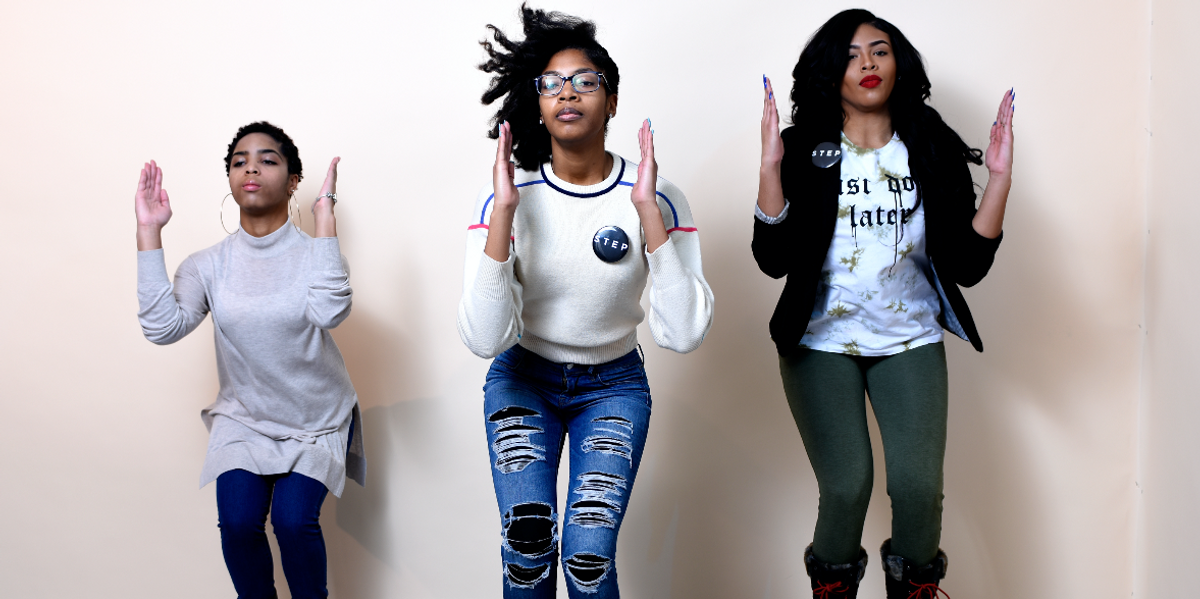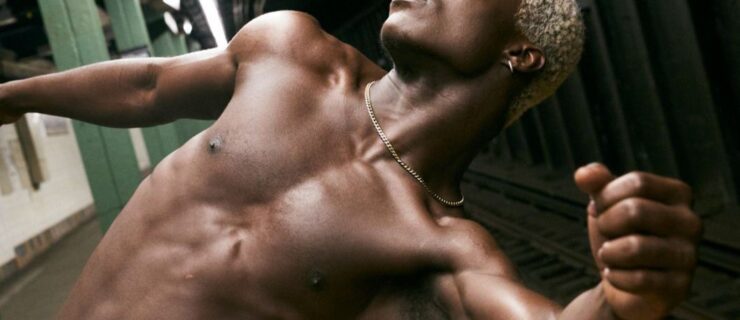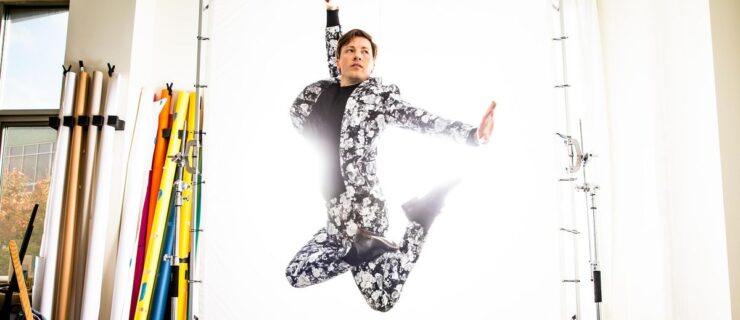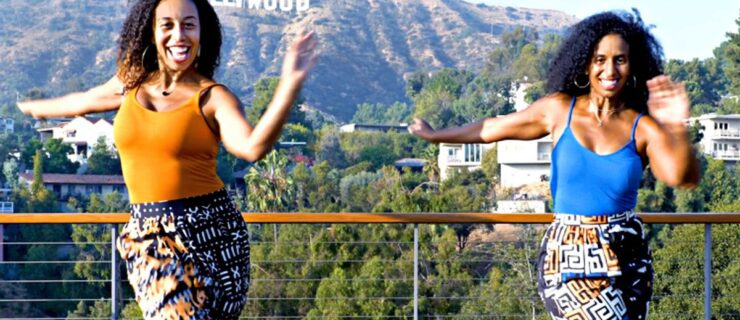The Super-Fierce New Documentary "STEP" Opens This Friday
It’s about time stepping got the mass recognition it deserves. And the ladies of the Baltimore Leadership School for Young Women are seeing to just that in the new documentary STEP. Opening in theaters this Friday, August 4, the film follows the Lethal Ladies step team at the all-girls public charter school as they compete their way to the top, deal with off-stage family issues, and navigate through high school milestones like applying to college. It’s a story of sisterhood and courage—and it features some serious #blackgirlmagic. Long story short, we’re kinda obsessed.
We sat down with Blessin’ Giraldo, founder of the Lethal Ladies and star of the film, to hear more about what it was like to shoot during her senior year—and about why the documentary, and step, mean so much to her. (And yes, you’ve seen her before: Blessin’ auditioned for this season of “So You Think You Can Dance” and she flat-out slayed.)
Dance Spirit
: First things first: How would you describe step dance for those who may not be familiar?
Blessin’ Giraldo: Stepping is an art form that comes from Africa. Africans would use this form of dancing to express themselves and to communicate. They’d use it to come up with codes, and call and responses, to use in the mines. It’s made its way to North America and now is well-known as a collegiate sport. I don’t think people understand the rich culture of step and they don’t understand where it comes from. That’s why I think this film is so important. Not just because we’re passionate about what we do, but because we’re educating people about the art form.
DS
: What sets step apart from other dance genres?
BG: Stepping is so different than most types of dancing because in dance you usually need a beat. And if you mess up no one can physically hear you, they can only see you mess up. But as far as stepping goes, we don’t need a beat, we create the beat. We do that through rhythm, with hand claps, feet stomping, facial expressions, and call and responses, and through using our vocal chords. So, in step, we’re human instruments.
DS
: What led you to start the Lethal Ladies team?
BG: I founded the step team in sixth grade, when I was 11 years old. I always had a passion for dance, whether it was modern or hip hop or tap, and I was the girl in school who would round up all of her friends in the gymnasium and put on the Cheetah Girls or the Spice Girls and we would just dance in the gym. When I was accepted into BLSYW it was like a divine order because there weren’t any electives formed yet. So I figured why not start something and create a legacy, and put my creativity to work. With the help of my sisters, who believed in my vision, it became a reality and now we’re undefeated. I’m so proud.
DS
: What did having the team in your life mean to you?
BG: It kept me focused. It made me want to be well-rounded. Our coach put rules in place, where if you didn’t come to school we couldn’t go to step practice. That made me pick up a lot of slack and it made me a better person, too. Step taught me a lot about myself and where I was going. It showed me how to be disciplined, how to be courageous, and how to speak up for myself. We use our platform a lot by featuring politics in our pieces or by doing tributes to African culture, and that tells us a lot about ourselves and where we come from, as well. From the team, I learned about who I am, and the kind of person that I wanted to be.
 Blessin’ Giraldo and the Lethal Ladies of BLSYW in “STEP.” (Willam Gray, © 2017 Twentieth Century Fox Film Corporation)
Blessin’ Giraldo and the Lethal Ladies of BLSYW in “STEP.” (Willam Gray, © 2017 Twentieth Century Fox Film Corporation)
DS
: What’s your favorite thing about the documentary?
BG: That I’ll be able to look back on my senior year when I’m 60, 70 or 90 years old, and show my grandchildren. I’ll never be able to forget my senior year now. It was an awesome year for us, and that’s pretty cool. Not a lot of people can say that their senior year was recorded and not a lot of people can say that they have an actual movie or documentary of it.
 The Lethal Ladies before a performance in “STEP.” (Courtesy Fox Searchlight Pictures, © 2017 Twentieth Century Fox Film Corporation)
The Lethal Ladies before a performance in “STEP.” (Courtesy Fox Searchlight Pictures, © 2017 Twentieth Century Fox Film Corporation)
DS
: What are you most excited for people to take away from the film?
BG: I want people to be inspired to stay courageous and to believe in themselves. I want them to know that no dream is too big and no dream is too small. Never let anything interfere with what you think about yourself and the goals that you set for yourself. No matter where you’re from or what social status you’re a part of or what your GPA is or what race you are, you can’t let those things interfere with your dreams. This world is full of opportunities and with a level head and the right amount of confidence the possibilities are endless.
DS
: Do you have a favorite routine from your years with the team?
BG: One of my favorite routines was when we did a tribute to Black Lives Matter. We put our fists in the air and said ‘It could have been us.’ We actually used our platform. And now, with the documentary in theaters all over the world, people are forced to listen to us. We’re challenging them to do something about this movement and to say to their neighbors ‘Look, this is going on in our community. I might be from Australia or Colorado or California, and the Black Lives Matter movement might not be so relevant to me, but now we know about it. And now I can’t say that I’m ignorant to it. I can tell someone about this and make a difference.’ To me, it was a call to action and that’s definitely why it’s one of my favorite routines. Also, we wore “Smooth Criminal”-esque costumes and they reminded me so much of Michael Jackson. He played a huge part in my creative influence growing up and as a young girl I looked up to him so much. So to have a positive message, and a message that actually stands for something, and to be able to pay tribute to the king of pop, meant so much to me.
Make sure to check out the full film
this weekend, but for now, let this extended clip tide you over (it’ll give you allll the feels):




